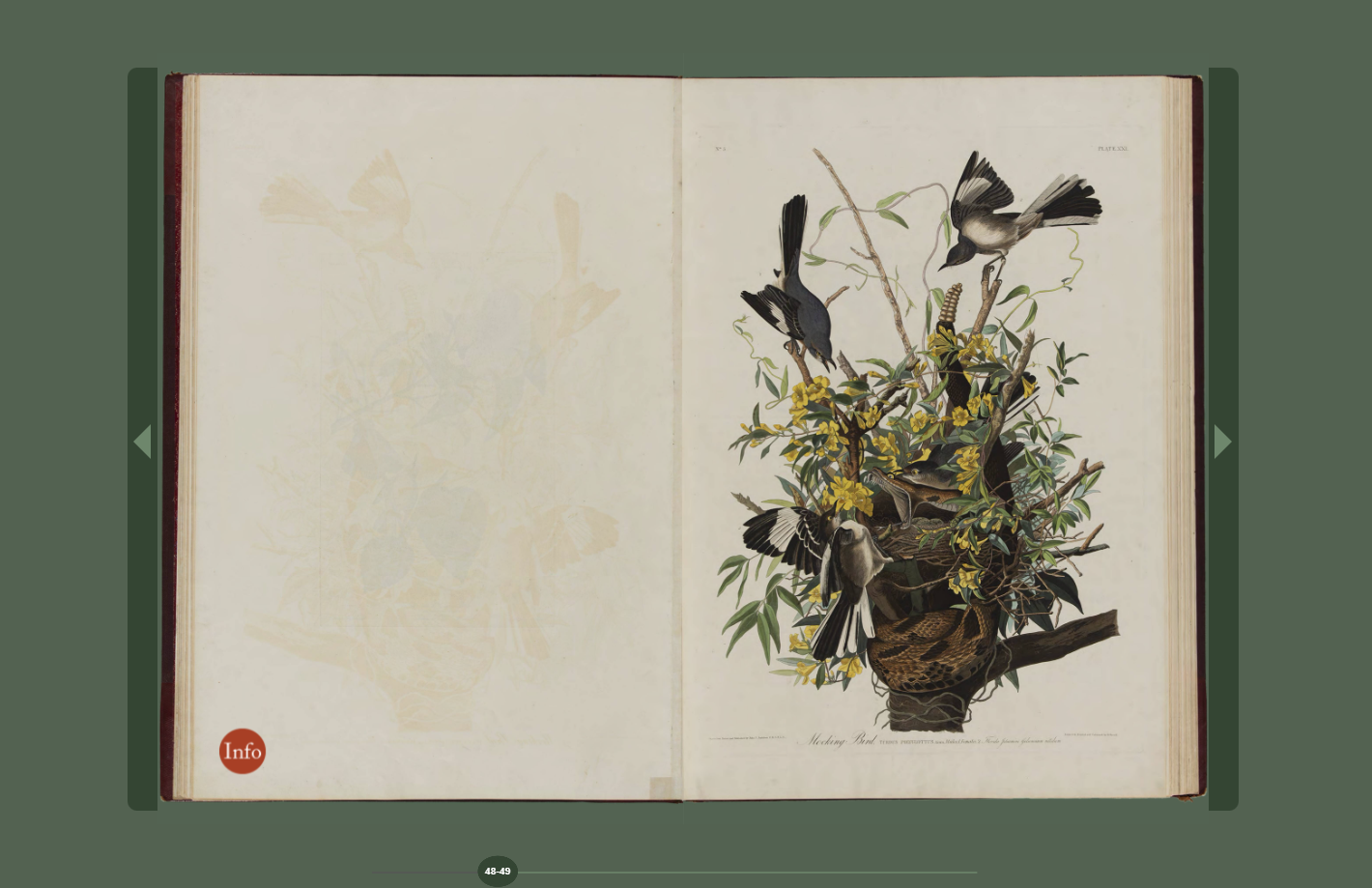
Click on the link below to view the Audubon Folio One Interactive-
Sketching Splendor: American Natural History, 1750-1850 was open from April 12 to December 29, 2024 at the American Philosophical Society Museum.
Through words and images, William Bartram (1739-1823), Titian Ramsay Peale (1799-1885), and John James Audubon (1785-1851) captured nature’s splendor. The careers of these natural historians spanned an exciting period in early American science.
Naturalists explored lands unfamiliar to Europeans. They engaged with new ideas and scientific approaches. They borrowed freely from art to express evocative ideas about nature.
At the same time, natural history was not without consequences. The work of these three naturalists claimed lands that belonged to Native nations. It promoted practices that ultimately led to environmental destruction. It endorsed racial hierarchies. Finally, they relied on the unacknowledged contributions of Native Americans and Africans.
Bartram, Peale, and Audubon’s work is filled with injustice and innovation in equal measure. This exhibition invites you to engage with this complexity.

Click on the link below to view the Audubon Folio One Interactive-
Support for this exhibition was provided by The Andrew W. Mellon Foundation, the Pennsylvania Historical and Museum Commission's Cultural and Historical Support Program, APS Members and Friends, and donations by visitors to the APS Museum.